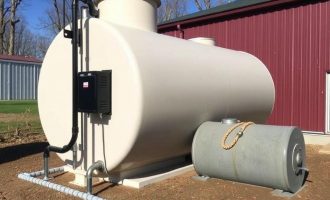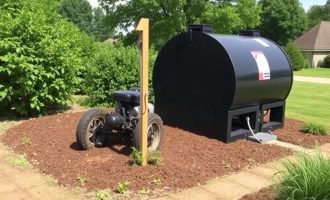Choosing a septic tank installer may not seem like the most exciting task, but it’s a crucial decision that can save you time, money, and headaches down the road. Whether you’re installing a new system or replacing an old one, selecting the right professional ensures your septic system works efficiently for years to come. Septic systems are underground, out of sight, but their proper installation and maintenance are absolutely vital for your home’s health and the surrounding environment. So, knowing how to choose a septic tank installer wisely is essential.
Many homeowners feel uncertain about where to start with this process. It’s not just about finding someone who can dig a hole and put in a tank; it’s about finding a skilled, reputable professional who understands local regulations, soil composition, and the best practices in septic system installation. In this guide, we’ll talk you through all the factors you need to consider, from researching potential installers to understanding important questions you should ask. We’ll also explain some key terminology and what makes an installer stand out. By the time you finish reading, you’ll be well-prepared to choose a septic tank installer with confidence.
- Understanding the Importance of a Quality Septic Tank Installation
- Step 1: Research Local Septic Tank Installers
- What to Look for in an Installer’s Credentials
- Step 2: Evaluate Experience and Services Offered
- Checklist: Key Services of a Good Septic Tank Installer
- Step 3: Assess the Installer’s Equipment and Technology
- Step 4: Request Multiple Quotes and Compare Pricing
- Comparison Table: Example of Septic Tank Installation Quotes
- Step 5: Communicate and Ask Important Questions
- Step 6: Verify References and Past Work
- Step 7: Understand the Final Contract and Warranty Details
- Key Elements to Check in Your Installation Contract
- Conclusion
Understanding the Importance of a Quality Septic Tank Installation
Before diving into the practical steps of how to choose a septic tank installer, it’s helpful to understand why quality installation matters so much. A septic system treats household wastewater on-site, which means it relies on the correct design and proper installation to prevent leaks, blockages, or pollution of groundwater. A poorly installed septic system can lead to costly repairs, odorous backups, or even environmental damage.
The septic tank holds solids while allowing liquids to flow into the drain field for further treatment. If the tank size isn’t right or the installation doesn’t properly align with soil characteristics or local codes, the system’s performance will deteriorate quickly. That’s why choosing an installer with the right expertise, experience, and certifications can make all the difference. They ensure the system is designed and installed with precise measurements, appropriate materials, and industry-standard techniques.
Step 1: Research Local Septic Tank Installers

The first step in learning how to choose a septic tank installer is to start your research. Begin by asking friends, family, or neighbors if they have recommendations. Word-of-mouth referrals are often the most trustworthy way to find installers who have proven their skills in your area. Online reviews and business directories can also give insights into customer satisfaction.
It’s important to focus on local installers because septic systems depend heavily on the specific soil conditions and regulations of your region. A local installer will be familiar with permit processes and the best practices tailored to your environment. When looking at different companies, take note of how long they’ve been in business, the range of services they offer, and whether they specialize in residential or commercial septic systems.
What to Look for in an Installer’s Credentials
When researching installers, verify that they have all necessary licenses and certifications required by your state or local government. Septic tank installation is a regulated profession in many areas, meaning professionals must follow strict guidelines to ensure safety and environmental protection. A reliable installer will not hesitate to provide proof of licensure and insurance coverage.
Additionally, membership in professional organizations, such as the National Onsite Wastewater Recycling Association (NOWRA), can indicate a commitment to ongoing education and industry standards. Ask if the installer stays current with the latest technologies and best practices.
Step 2: Evaluate Experience and Services Offered
Experience counts for a lot in septic tank installations. An installer with many years in the industry has likely encountered a wide variety of situations—from different soil types to unique lot configurations—that make them better equipped to handle your project.
Be sure to inquire about the company’s experience with the specific type of septic system you need. For example, conventional gravity-fed systems, aerobic treatment units, or other specialized setups may require different installation expertise. Also, check if the installer offers additional services such as septic tank pumping, maintenance, or repairs. Having a single trusted company to handle all aspects of your septic system can simplify your life and make ongoing care easier.
Checklist: Key Services of a Good Septic Tank Installer
- Septic tank installation and replacement
- Site evaluation and soil testing
- System design and permitting assistance
- Tank inspection and maintenance
- Septic system repair services
- Emergency support options
Step 3: Assess the Installer’s Equipment and Technology
Modern septic system installation benefits from advanced equipment and technology, which can lead to more accurate installation and better long-term system performance. When you speak to potential installers, ask what kind of machinery and tools they use. High-quality equipment can minimize soil disruption, improve safety, and ensure the tank is positioned precisely.
Technology also refers to the types of materials and system components the installer recommends. For instance, newer septic tanks made from durable plastic or fiberglass may offer advantages over older steel models. Some installations now include enhanced filtration or monitoring systems, which can catch problems early.
Step 4: Request Multiple Quotes and Compare Pricing
Cost is obviously an important factor when deciding how to choose a septic tank installer, but it shouldn’t be the only one. Getting multiple quotes—from at least three different companies—helps you understand the price range for your project. Be sure each quote includes a clear breakdown of labor, materials, permits, and any other fees.
Keep in mind that the cheapest option is not always the best. Some installers may cut corners or use lower-quality materials to offer a lower price, which can cost you more in repairs later. Instead, look for a fair price that reflects the installer’s expertise, the quality of materials, and the scope of services provided.
Comparison Table: Example of Septic Tank Installation Quotes
| Company | Estimated Cost | Materials Used | Included Services | Warranty Offered |
|---|---|---|---|---|
| Greenfield Septic | $6,500 | Concrete tank | Installation, permit handling, 2-year system checkup | 5 years on materials |
| ClearFlow Systems | $7,200 | Plastic tank | Installation, soil testing, maintenance package | 7 years on tank |
| EcoWaste Solutions | $5,900 | Steel tank | Installation only | 1 year limited |
Step 5: Communicate and Ask Important Questions
Communication is key in any home improvement project. When talking with a septic tank installer, ask clear and direct questions to gauge their knowledge and professionalism. Here are some important questions to ask:
- How long have you been installing septic systems in this area?
- Are you licensed and insured? Can you provide documentation?
- What size tank do you recommend for my property, and why?
- Can you help with the necessary permits and inspections?
- What are the expected maintenance requirements for this system?
- Do you offer warranties on your installation work and materials?
- How do you handle unexpected issues during installation?
- Can you provide references from recent customers?
Their answers will help you see if the installer is knowledgeable, transparent, and customer-focused. A good septic tank installer will educate you about the system, explain choices clearly, and provide honest advice.
Step 6: Verify References and Past Work

Before making your final decision, take the time to follow up on references. Reach out to previous clients to ask about their experience, timeliness, professionalism, and the performance of their septic system after installation. Genuine customer feedback can reveal what to expect and if the installer delivers on promises.
If possible, ask the installer to show you examples of past projects or even visit a nearby site where they’ve done work. This firsthand look can boost your confidence in their abilities.
Step 7: Understand the Final Contract and Warranty Details
Once you select an installer, carefully review the contract before signing anything. The contract should clearly outline the work to be done, the timeline, the total costs, payment schedule, and warranty terms. Make sure you understand what’s covered under the warranty and how to contact the company if issues arise.
Also, confirm who is responsible for securing permits and conducting final inspections. A detailed contract protects both parties and minimizes misunderstandings.
Key Elements to Check in Your Installation Contract
- Scope of work and system design details
- Material specifications and brand names
- Payment terms and conditions
- Estimated start and completion dates
- Warranty length and coverage specifics
- Liability and insurance information
Conclusion
Choosing the right septic tank installer requires careful research, thoughtful questions, and a clear understanding of your home’s needs. By focusing on local experience, licensing, service offerings, equipment, pricing transparency, and open communication, you can find a reliable professional who ensures your septic system is installed correctly and operates smoothly for years to come. Remember, this is an investment in your property’s health and the environment, so don’t rush the decision. Taking the time to choose wisely pays off in a safe, efficient, and hassle-free septic system that provides peace of mind.
Помогла вам статья?






